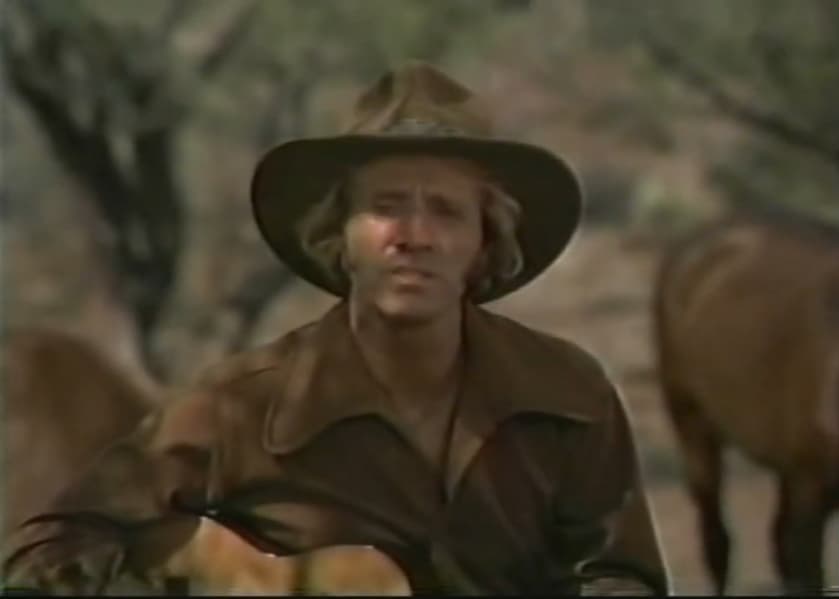
The Poetic Lament of the Lone Cowboy
Restless Hearts, Restless Souls: A Ballad for the Ages
When we think of Marty Robbins, our minds often drift to the dusty streets of “El Paso,” to the tragic tale of “Big Iron” and Texas Red, or the haunting, lonesome whistle of a ghost rider in the sky. These are the sweeping, cinematic epics that defined his legacy, songs that told grand stories of love, jealousy, and fatal showdowns. But tucked away in the sprawling back catalog of this country and western legend is a piece of quiet, breathtaking poetry that speaks to a different kind of heartache. Released in 1979 on the album All Around Cowboy, the song “Restless Cattle” never graced the top of the charts like its more famous brethren. It wasn’t a commercial powerhouse, and it never became a radio staple, a fact that makes it something of a hidden gem for those who truly appreciate the depth of Robbins’ artistry. Its lack of a high-profile chart position is perhaps a testament to its intimate, unadorned nature—it wasn’t meant for mass consumption, but for quiet reflection.
The beauty of “Restless Cattle” lies in its simplicity, a deceptive simplicity that masks a profound emotional core. The story behind the song is as personal and authentic as the man himself. It’s said that Robbins, a true cowboy at heart who owned and worked his own ranch, would often sing to his own herd to soothe them, a practice common among old-time cattlemen. The song is a direct reflection of this experience, but it takes on a much deeper, more poignant meaning. At first listen, it’s a straightforward lament from a weary cowboy to his herd, pleading with them to settle down as the night falls. But as the verses unfold, the song reveals itself to be a deeply personal monologue, a heart-to-heart conversation not with the cattle, but with his own troubled soul.
The cowboy in the song, much like the cattle he tends, is “tired, sad, and lonesome” and finds no rest. He’s a man burdened by an unstated, but keenly felt, melancholy. He speaks to the herd as he would to a fellow human, understanding their inner turmoil because it mirrors his own. “Are you hungry and have not eaten?” he asks, “Or did your woman leave you, too?” The questions are rhetorical, yet they are powerful. They transfer his own pain—the hunger for love, the emptiness left by a lost woman—onto the beasts around him, making their restlessness a metaphor for his own. The song’s genius is in this transference. The cowboy isn’t just singing about cattle; he’s singing about himself, using the imagery of the herd as a canvas for his own sorrow.
For those of us who have walked a long path, who have seen seasons change and faces fade from memory, the song resonates with a timeless ache. It speaks to that universal feeling of being out of sync with the world, of carrying a loneliness that no amount of work or distraction can cure. The narrator is a classic Western archetype, a man of few words and rugged resolve, yet here he lays bare a vulnerability that is utterly disarming. When he sings, “You’re just like me, all you want to do is roam,” it’s a moment of profound self-realization, a confession that his physical travels across the plains are just a symptom of a deeper, spiritual restlessness. The wide-open spaces he inhabits are not a source of freedom, but a mirror reflecting his boundless, unfulfilled longing.
“Restless Cattle” is a masterpiece of introspective lyricism, a quiet rumination that stands shoulder to shoulder with the more epic narratives in Marty Robbins‘ discography. It is a song that invites you to slow down, to listen closely to the wisdom in its simple words, and to find a bit of your own story in the cowboy’s desolate landscape. It reminds us that even the toughest among us, the lone figures who seem to walk a path of unbending strength, are often just as “tired, sad, and lonesome” as the rest of us, searching for a peace that is always just out of reach. It’s a song for the twilight years, for those moments when the sun has set on a long day and all that is left is the quiet, honest truth of a heart still searching for home.